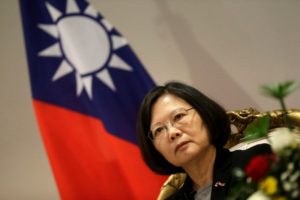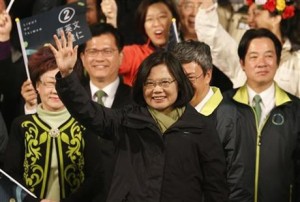Do you want yet another example of Donald J. Trump’s ignorance about geopolitics and the relationships between governments?
Try this one: The president-elect today called the president of Taiwan in what’s believed to the first head of state discussion between leaders of the nations since 1979. Big deal? It sure is. The United States does not have diplomatic relations with Taiwan.
I believe we have the makings of a potentially huge rift between the United States and the People’s Republic of China.
So, what’s the PRC’s stake in this?
Well, Taiwan was created after a bloody civil war in China after World War II. The Kuomintang nationalist government that used to rule China fled to Taiwan after being defeated by the communists led by Mao Tse-Tung. The commies have been saying since 1949 that Taiwan is a “renegade province” and have vowed to take it back — with brute force, if need be.
The United States recognized the Taiwan government until 1979, when we decided to recognize the PRC. Given the communists’ “one-China policy,” the United States had to sever its ties with Taiwan; U.S. policy could not accommodate a second “China.”
Therein lies the crux of the issue here. Trump might not understand fully the highly complicated PRC-Taiwan relationship and how that plays into U.S. policy regarding the PRC and Taiwan.
“The Chinese leadership will see this as a highly provocative action, of historic proportions,” said Evan Medeiros, former Asia director at the White House national security council.
I don’t profess to be an expert on this relationship, but I have made five visits to Taiwan over many years. The first visit was in 1989; I returned in 1994, 1999, 2007 and 2010.
Taiwan has evolved into a modern, sophisticated, technically advanced country in the 66 years since the Kuomintang fled the mainland. It is virtually “independent” as it is, but the government dare not declare its independence openly out of concern that the PRC would retaliate with an armed invasion of the island nation.
Doesn’t the U.S. president-elect understand the ramifications of a simple phone call to Taiwan’s president, Tsai Ying-wen?
Sure, Trump savaged the Chinese during his campaign over the jobs it has taken from American workers. Therefore, the PRC leadership might feel threatened by the prospect of a Trump presidency.
This phone call, though, to the leader of a nation with which the United States has zero diplomatic relationship ratchets up concerns on the Asia mainland about whether the new U.S. president understands the meaning of diplomatic protocol.
Believe this, Mr. President-elect, geopolitical protocol matters … a lot!

